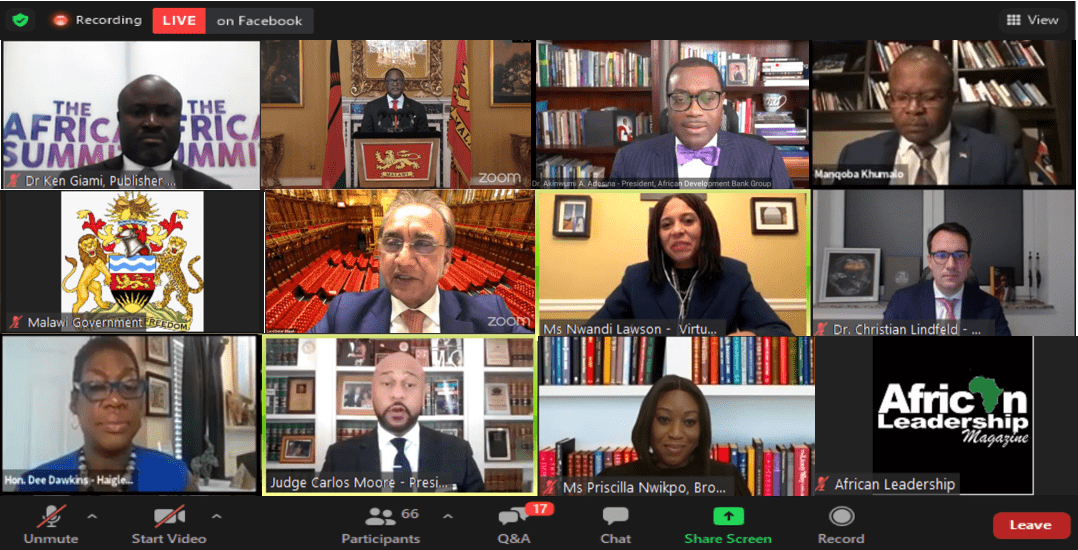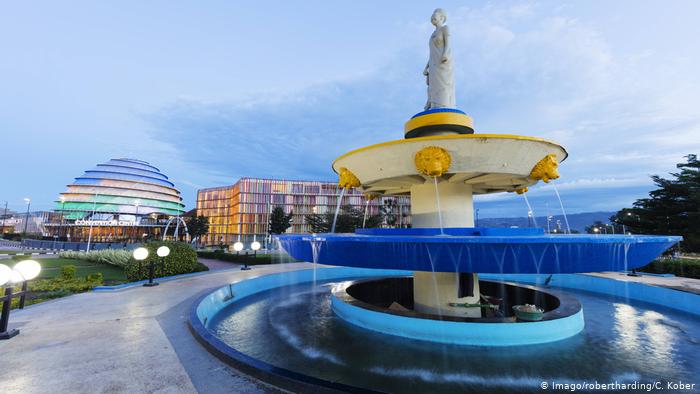The African Development Bank celebrated 40 years of evaluating its development efforts in a discussion marked evaluation week during a biennial event on development evaluation hosted by the Independent Development Evaluation unit at the Bank recently. The event unites the Bank’s shareholders, management and staff, government policy and decision-makers, development partners, civil society, and other experts as they come together to reflect on the challenges around monitoring and evaluating progress in the SDGs.
This year’s theme is From Learning to Transformational Change in Africa: Accelerating Africa’s delivery of the Sustainable Development Goals in the Decade of Action. The first day focused on the challenges of obtaining accurate data on African countries’ progress towards the SDGs and their value.
Pascal Byarugaba, Monitoring & Evaluation Specialist at the SDG Secretariat in the Office of the Prime Minister of Uganda, and Margaret Kakande, Head of the Budget Monitoring and Accountability Unit at the Ugandan Finance Ministry, presented Uganda as a model of African countries learning from measuring SDG progress.
“One of the key achievements in fostering institutionalization of the SDGs has been the identification of baselines for 140 indicators,” Kakande said.
According to the UN, in 2015, Uganda became one of the first countries to integrate the SDGs in its National Development Plan. The East African country positioned nineteenth out of 52 African countries in the 2020 SDGs Index. The SDG report praises Uganda’s “commitment to institutionalize governance mechanisms at the national level to promote awareness, bureaucracies’ capacities, and preparedness for the implementation of both Agendas 2030 and 2063.”.”
Stefano D’Errico, Head of Monitoring, Evaluation, and Learning at the International Institute for Environment and Development, noted that Uganda was a role model for how to adapt SDG indicators to the local context.
“For example, SDGs indicators are now being localized to have monitoring and reporting at the district level,” Byarugaba said.
Momar Kouta and Rafik Mahjoubi of the African Development Bank Statistics Department presented the Bank’s SDG tracking portal, data dissemination and reporting system that is available on-demand to all 54 African member countries of the Bank, as well as regional and sub-regional organizations, central banks, ministries of finance and other churches.
Ambrose Rwaheru Aheisibwe, SDGs Advisor, Monitoring and Evaluation at the Sustainable Development Goals Center for Africa, said the COVID-19 crisis had aggravated regional and continental data inequalities because traditional means of data collection are no longer possible.


